|
At the October meeting, the ECB Governing Council decided to keep the three key ECB interest rates unchanged. The interest rate on the main refinancing operations and the interest rates on the marginal lending facility and the deposit facility remained unchanged at 4.50%, 4.75% and 4.00% respectively.
According to the policy statement, "The latest information broadly confirmed the previous assessment of the medium-term inflation outlook. Inflation is still expected to stay too high for too long, and domestic price pressures remain strong. At the same time, inflation dropped markedly in September and most measures of underlying inflation have continued to ease. The Governing Council’s past interest rate increases continue to be transmitted into financing conditions. This is increasingly dampening demand and thereby helps push down inflation. The Governing Council is determined to ensure that inflation returns to its 2% medium-term target in a timely manner. Based on its current assessment, the Governing Council considers the key ECB interest rates are at levels that, maintained for a sufficiently long duration, will make a substantial contribution to this goal. The Governing Council’s interest rate decisions will be based on its assessment of the inflation outlook in light of the incoming economic and financial data." Official figures showed inflation in the Eurozone eased to 4.3 per cent in September from 5.2 per cent in August. Inflation is expected to average 5.6% in 2023, before dropping to 2.9% in 2024 and 2.2% in 2025 according to projections from ECB staff. EU annual inflation eased to 4.9% in September, down from 5.9% in August, according to latest data from Eurostat, the statistical office of the European Union. The IMF latest forecasts assume growth of 0.7% in 2023 rising to 1.2% in 2024. So trick or treat? The hold on rates is in line with our expectations. Rates may be on hold for longer as inflation trends unwind. Fed On The Fence ... The Fed is more agnostic. In their discussion of monetary policy for the September meeting, members agreed that economic activity had been expanding at a solid pace, the wording changed from "moderate" to "solid." They also concurred job gains had slowed in recent months but remained strong, and the unemployment rate had remained low. Inflation had remained elevated. A majority of participants judged that one more increase in the target federal funds rate at a future meeting would likely be appropriate, while some judged it likely that no further increases would be warranted. Now it would appear the Federal Reserve is virtually certain to keep rates on hold at the meeting on November 1st. That’s according to recent statements from Fed policymakers and the expectations of fixed income markets. According to the CME FedWatch Tool markets attach a 98.6% probability to the rates on hold event, this despite strong economic data in growth and jobs. Latest growth data for the U.S.A. suggests the economy expanded by 2.7% year on year in the third quarter. Forecasts for the year as a whole will be upgraded to 2.4% for the year, an upward revision from the latest IMF estimate of 2.1%. The job market continues to run hot. Inflation is steadying. Core PCE inflation in September was 3.4%. in the month and for the third quarter of the year as a whole. A hold on rates may bring some stability to bond markets. Ten year yields were trading at 4.3% prior to the Fed September meeting. At close this weekend, rates had risen to 4.9%. Thirty year rates were trading at 5.0% up from 4.4%. Are the bond market vigilantes saddling up?, the theme of our special edition this month Don't miss that. We had expected one further rate rise next week. Now this seems unlikely. Rates on hold trick or treat, more trickery than treat. Rates on hold to steady the bond markets. There will be further rate hikes ahead, to steady growth, wage increases and inflation. MPC In The Middle ... The MPC meets on Thursday this week. We had expected a further rate rise of 25 basis points but "rates on hold" is now the more likely outcome, or so it would appear. Speaking in Marrakech earlier this month, Andrew Bailey said “Our last meeting was such a tight one and as my colleague Huw Pill has said, they’re going to go on being tight ones,” he told the Institute of International Finance annual membership meeting. At its meeting ending on 20 September 2023, the MPC voted by a majority of 5–4 to maintain Bank Rate at 5.25%. Four members preferred to increase Bank Rate by 0.25 percentage points, to 5.5%. Five voted for rates to remain on hold. Inflation remains "sticky", CPI held at 6.7% in September unchanged from 6.7% in August. Core inflation, eased to 6.1% from 6.2%. Food inflation has eased to 12.3%. Energy costs eased to 5.0% from 23.3% in June. Service sector inflation increased to 6.9% from 6.8%. Goods inflation eased to to 6.2% from 6.3%. Producer Prices are moving in the right direction. Input prices were at -4.5 % in September. Output prices moved to -0.1% from -0.4% prior month. We expect input and output prices to be negative in Q3 and Q4. Markets expect headline inflation to fall below 5% in the final quarter. Markets and the MPC have been spooked by the latest data on earnings. Earnings increased by 8.1% in August. Public sector pay increased by 12.5%. Private sector pay increased by 7.1%. Earnings at such inflated levels are not compatible with an inflation target of 2%. Neither are they compatible with base rates on hold at just over 5%. Ten year gilt rates closed at 4.6% this weekend from 4.5% at the end of September. The UK bond vigilantes not saddling up, just "walking and chewing gum" as the MPC is stuck in the middle between policy makers in Europe and the U.S. So rates on hold trick or treat? We'll have to keep watching the data on that one ...
0 Comments
The Tories received a bit of a shock this week. Bye election results in Tamworth and Mid Bedforshire delivered wins for Labour with significant reversals of Conservative majorities.
Tamworth Labour tweeted that it was an “absolutely sensational result”. The Tories starting the night with a majority of almost 20,000 but Labour won with a majority of 1,316. Election expert Sir Jon Curtice said that “no government has hitherto lost to the principal opposition party in a by-election a seat as safe as Tamworth.” Tory Party Chairman Greg Hands said he will not resign despite the losses. "The swing to Labour was clearly disappointing but bye elections are not a good indicator of how the general election will turn out." "People think Rishi is doing a good job, He is the best leader to take the country forward. We are committed to halving inflation, restoring growth, cutting debt, reducing hospital waiting list and stopping the boats. We are making the right decisions on transport infrastructure, smoking and mathematics." OK don't mention prison overcrowding and popup cells in courtyards. Greg Hands sought to deflect blame away from Rishi Sunak, saying the defeats, which came on the back of two by-election losses in July, were the result of "legacy issues" that pre-dated Mr Sunak's time in office. The party's defeats have been criticised by its own MPs, with Dame Andrea Jenkyns saying the Tories needed to make "far-reaching major changes now". David Frost, the UK's former chief Brexit negotiator, said the results were "extremely bad for my party". I don't think it helps to suggest otherwise, as some party figures have done this morning. The current national polls are dreadful for us but these results are even worse. These results show that the national polls are broadly correct and that a strategy of denial is unlikely to work." George Osborne said Sunak and chancellor, Jeremy Hunt, have restored a rational, serious approach to politics but he and other Cameroons were offended when Sunak tried to present himself as the radical-change candidate after 13 years of a failed Tory government. I don't think he's really going to be able to pull that off, Osborne said. You can't say, "All that went before me was pointless or useless, because people will say: Well you were part of that party, you are pointless and useless." It''s a fair point. The bye elections occurred when Chris Pincher resigned for groping, Nadine Dorries resigned for sulking. There was no swing to Labour. Labour picked up 800 votes in Tamworth but lost 150 votes in Mid Bedfordshire. The Tories lost 16,000 votes in Bedforshire and 20,000 votes in Tamworth. Tory voters stayed at home. Legacy issues, thirteen years in office, pointless and useless. That's a lot of electoral baggage ... and a clear message to Number Ten ... It was Liam Byrne Chief Secretary for the outgoing Labour government in 2019, who penned the note for his successor to say "I'm afraid there is no money". Byrne came to regret the comment, which he described as stupid and offensive. Offensive to the millions of people who had made sacrifices to achieve the budget cuts. Stupid because it became easy for Labour opponents to bash the economic mess inherited.
Perhaps the comment was not quite as offensive as that made by the Tory Chancellor Reggie Maudling, who bounced down the steps of the Treasury in 1964 to tell Jim Callaghan, "Sorry to leave it in such a mess, old cock." Jeremy Hunt has wasted no time in advising there is no money for tax cuts in the forthcoming Autumn statement. Perhaps little chance of tax cuts in the Spring either, which will be the last budget before the 2024 election. The IFS have made it quite clear, the economy is in a bit of a mess "Old Cock". "We are in a horrible fiscal bind as low growth and high debt interest payments mean there is no room for manoeuvre." "The UK economy remains stuck between weak growth on the one hand and the risk of persistently high inflation on the other. An ill-timed fiscal loosening, such as an unfunded package of pre-election tax cuts might give a short-term economic sugar rush, but could prove unsustainable. This could lead to a protracted recession as interest rates rise even further to bring inflation back under control. The state of the public finances also undermines the case for net tax cuts any time soon. The Chancellor is in a terrible bind, as will be whoever is Chancellor after the general election. Poor growth and very high spending on debt interest over the next few years mean that the national debt is stuck at close to 100% of national income. In the first six months of the year, Public Sector Borrowing was £81.7 billion. That's £15.3 billion up on prior year, an increase of 23%. In the full year, 2022/23, borrowing was £128.3 billion. Pro rata the government is set to borrow over £150 billion this year [in line with OBR forecasts]. Total debt has risen to £2.6 trillion, 97.8% of GDP. Political pressure are rising, especially following the bye election results this month. Jeremy Hunt may well caution, "I'm afraid there is no money." The response may well be, "Well just print some more then anyway. We can sort the mess out later ... The Labour Party was in Liverpool this week. "Let's Get Britain's Future Back" the slogan. The Conservative Party was in Manchester last week, "Let's Get Britain's History Behind Us" the objective. For the Labour Party, it was the best of times. For the Tories, it was the worst of times.
News that NHS waiting lists had topped 8 million was bad, but then came news waiting lists would have to be added to prison occupation. Judges were warned sentencing should be delayed, the prison cells were full. But where to put them. Criminals could be handcuffed to trolleys outside A&E or held over in prison delivery vehicles, or put on a flight to Rwanda, the home office favourite option, perhaps. Rishi Sunak was forced to admit the list of project for infrastructure in the North was "illusory". Although the word used was "illustrative", I guess we knew what he meant. OK, the metro link to Manchester airport was on the list, even though it was completed over seven years ago. A simple mistake by a few SPADs, late at night, over drinks and pizza in the Midland hotel. Chancellor Jeremy Hunt was in cautious mode. Tens of billions of pounds of higher debt interest payments and a slowing economy suggest the UK's fiscal picture is far worse than it was in the spring. The growth outlook has worsened, ruling out the possibility of tax cuts this Autumn. No excitement ahead of the Autumn statement. So what is the point of an Autumn statement at all? "Make UK" has urged the Chancellor to drop the concept of an Autumn statement altogether, there really is nothing to add. If the best policy offer from the Prime Minister is a ban on smoking and maths to eighteen, then what can a beleaguered Chancellor offer, in a week in which the IMF downgrades forecasts for growth. So it was left to Prime Minister in waiting, Sir Kier Starmer to fill the void. Starmer's conference speech was considered to be one of his best yet. It didn't get off to a great start. When he walked on stage, a protester sprang upon him with a handful of glitter before being tackled to the ground by security. "If he thinks that bothers me, he doesn't know me," Starmer quipped. John Prescott would have thumped the intruder. Starmer didn't look bothered. He just took off his sparkly jacket, rolled up his sleeves and carried on. His audience loved him for it. According to Freddie Hawyard in the New Statesman, his main theme was rebuilding the future through infrastructure investment, planning reform and 1.5 million new homes. Starmer wants to build another generation of new towns, like Clement Attlee before him. He spoke of investment not as a burden on the national debt but as an opportunity to save money, crowd in private finance, create jobs and growth. "Government must steer the ship on industrial policy. That's a crucial part of any plan for growth," Starmer insisted, he wanted "not state control, not pure free markets, but a genuine partnership between business and government." It was a speech devoid of detail but offered direction. ‘Never interfere with an enemy while he’s in the process of destroying himself.’ the guideline. Starmer was keen to avoid giving the Tories too much ammunition. Tony Blair had carefully avoided detail in the run-up to the election of 1997. So careful was he, not to go into any detail in that campaign, that Roy Jenkins famously described Tony Blair as being "like a man carrying a Ming vase across a highly polished floor". "Sir Kier Starmer", according to Philip Johnston in The Telegraph, "is the latest Labour leader tip-toeing towards an election, terrified he will drop the priceless piece of porcelain". "His windy speech at the party conference, was replete with hackneyed generalizations and low on specifics." The Labour leader said "he wanted the nation to "walk towards a decade of national renewal and face down the age of insecurity". "Contrasting 13 years of things can only get better, with 13 years of things have only got worse". So what to make of it all? Rishi Sunak's rating has fallen to a record low since the Conservative Party conference, according to polling for The Times. The YouGuv survey found that only 20 per cent of voters believed Sunak would make the best Prime Minister. Sir Keir Starmer's rating fell by two points, to 32 per cent. Highlighting the uncertainty among voters a year before the possible date of the next election. 43 per cent of voters said they were not sure who would make the best leader. Matt Hancock in The Times today reports "In our monthly Times Radio focus group we asked a group of undecided voters what they made of it all. Sunak was seen as "quietly confident" "wealthy", "unbelievable", "untrustworthy" and "very, very, very rich". Starmer, by contrast, was "boring", "hopeless', "drab", "rubbish", "wet", "uninspiring" and "vanilla". It just goes to show, "not all that glitters can be sold." Even so, the latest YouGov/Times voting intention poll, post conference, shows the Conservatives on 24% to Labour's 47% up two points. It promises to be an interesting year ahead. Well we didn't see that coming. Rachel Reeves delivered what many consider to be her best speech yet.
According to Freddie Hayward in the New Statesman, "This was the best speech of her career so far. She spoke with seriousness and conviction. OK, there was little new substantive policy. A commitment to crowding-in private investment, a reduction in the government's use of consultants, a new team to claw back the money fraudsters stole during the pandemic. Restrictions on ministers use of private planes. A few million here or there is not going to change the purpose of the state. But it still matters politically." Reeves's key objective is reassuring voters that Labour won't crash the economy, but the Tories will. "The biggest risk to Britain's economy, is five more years of the Conservative party." Richard Partington writing in the Guardian, distilled five key takeaways from the speech. 1 Labour is open for business ... 2 Reeves is opposed to tax increases ... 3 Labour Backs Spending Discipline ... 4 Business Investment is a Labour Priority ... 5 Starmer wants to build not block ... And business was there in support or out of curiosity. Exhibition stands for Google, Ineos and Specsavers; slick videos for Amazon and Uber, fringe events sponsored by Deliveroo and Goldman Sachs. The parliamentary lounge was sponsored by Lloyds Bank. Make UK were impressed. "I'm very impressed by Rachel Reeves. She seems extremely competent" says Stephen Phipson, the chief executive of the manufacturing trade group Make UK. "What we've seen from the Labour party is a really strong commitment to making things in this country. We never saw that last week at the Tory conference. The whole thing about stability ... it was perfect. We have been calling for this for years." Greg Fitzgerald, the chief executive of housebuilder Vistry said, "We are encouraged by the moves which seek to deliver short, medium and long-term changes to unblock and reform the planning system." Sir Nigel Wilson, group chief executive at Legal & General, says: "We welcome Labour's approach, which seeks to take a holistic view of barriers to deliver ambitious outcomes [in the housing sector]." It was Mark Carney who delivered the surprise intervention into the Reeves presentation. Mark Carney, Governor of the Bank of England between 2013 and 2020 in a video message ahead of her speech, described Rachel Reeves as a "serious economist" "She began her career at the Bank of England, so she understands the big picture," he said. "But, crucially she understands the economics of work, of place and family. It is beyond time we put her energy and ideas into action." Well we didn't see that coming either. He didn't say that about Jeremy Hunt. Maybe all that glitters, can be sold after all, with a little bit of central bank sparkle. Ready To Serve, Ready To Lead, Ready To Rebuild, Ready For Action ... Let's Get Britain's Future Back on Track ... In London this week. The trip as part of a series of events, with Praetura. Praetura Group is the Manchester based financial services company specializing in lending and equity solutions for startups and SMEs. Dave Foreman MD, one of the founder members was presenting, a number of invested companies formed part of a fascinating panel. I opened the session with a thirty minute round up of the UK and World Economy. Lot of discussion about inflation and interest rates especially in view of the "Bond Market Mayhem" in the U.S. this week, but more on that later. Our trip did not get off to a great start.
Traveling from Lancaster to London, the scheduled train was cancelled. The next available train was overcrowded. The train eventually arrived in Euston, thirty minutes late. We were held up in Warrington station. Someone pulled the emergency cord. The pressure of the trip from Glasgow, too much perhaps. One guy just couldn't take any more. For him, the remainder of the trip to London was scrapped. Rishi Sunak's speech in Manchester came to mind. He had done a lot of scrapping this week, including HS2. News of the Sam Bankman-Fried trial filtered through, the FTX boss had stolen over $10 billion in an "Empire Built on Lies", the jury was told. This as nothing. Rishi Sunak had stolen almost $50 billion dollars from the people of the North in his speech. The promise of a ten billion dollar spend on potholes, evidence of myopia and misdirection, offering little comfort. No high speed rail, a ban on cigarettes, the promise of mathematics into the future the greater vision. For some it gets worse. If you've been struggling to find Walkers Worcester Sauce crisps, there is bad news. Walkers confirmed the derivative has been scrapped. Walkers has not confirmed why the decision was made. Rumours are circulating of an intervention by Number ten. Fans have flocked to Twitter to lament the loss. One said: "Walkers sacking off Worcester sauce crisps is absolutely criminal, as if the damage hadn't been done enough by getting rid of beef and onion." The Tories are blaming Labour for that one. Yep that and the tax on meat. Wall Street had expected 170,000 jobs to be created in September. The U.S. economy added 336,000 jobs, more than double the level economists had expected. The data underscored just how much strength remains in the labor market despite the Fed’s campaign to cool things down. Job growth for both July and August was also revised upward, showing a combined 119,000 more jobs had been created than previously reported. Unemployment remained steady at 3.8%. Earnings eased back in the latest data. Forecasts for growth in the U.S. have now been upgraded to over 2%. The good news on inflation continues. The bad news, the markets assume the Fed will hike rates further in November. We had always assumed a 25 basis point hike was coming before the end of the year. Mayhem in the bond markets? Not really. Ten year bond rates increased to 4.8% from 4.6%. Thirty year gilts closed just under 5% at 4.96%. Short rates three months, closed at 5.5%. Markets are conditioned to expect rates to be higher and for longer than expected earlier in the year. We have long warned of this, in the adjustment process to life after Planet ZIRP In the U.K. ten year gilts closed unchanged at 4.6%. 30 year gilts closed up 13 basis points at 5.05%. Six month rates were at 5.5%. One year rates eased back to 4.9% from 5.15%. No mayhem involved. The yield curve is normalizing. In the UK, prior to the Great Financial Crash [2000 - 2008] the average inflation rate was 2.0%, the average UK bank rate was 4.50%. Ten year Gilt yields averaged 4.50%. Thirty year gilts averaged 4.6%, real GDP growth averaged 2.5%, earnings averaged 3.5% and the unemployment rate averaged 5%. So what happens next in the U.K.? We expect a further 25 basis point rise before the end of the year. Base rates rising to 5.5%. Rates then on hold, this could be it for the cycle. The Bank will be keeping a close watch on earnings. Wages increasing at over 6%, is just not compatible with a 2% CPI target. The Home Secretary was in Washington this week. The plan to meet with members of the Biden administration and to deliver a headline grabbing speech at the American Enterprise Institute for Public Policy Research.
Known simply as the American Enterprise Institute, the AEI is a right wing libertarian think tank based in Washington, D.C. Research is focused on government, politics, economics and social welfare. One can only assume Braverman suggested a trip to Washington to distract press focus away from Number Ten. Anything to draw attention from the HS2 debacle and the Rushi Sunak "Scrap It" campaign. "I will probably talk about the challenges of multi culturalism and reducing the number of small boats coming across the channel" the Home Secretary would have said. "Sounds great" said the Prime Minister. I am involved in a bit of re positioning and self deprecation myself. Have a great trip. Try to stay out of the headlines!" According to Matt Chorley, at the Westminster Correspondents Dinner this week, Rishi Sunak located a sense of humour and self mockery. In his speech, the Prime Minister joked “The ban on Christmas? I’ve scrapped it. The plan for pubs allowed to open for just an hour a day? I’ve scrapped it. The ban on Strictly? I’ve scrapped it. And the ban on puppies, I’ve scrapped that too.” Sunak was also hoping to scrap the 20 mph limit for vehicles in Wales, along with the requirement for someone to walk in front of the vehicle waving a red flag. Until the Economic Secretary to the Treasury Andrew Griffith described Wales as a "province" in a TV interview on Friday morning. Andrew Griffith was speaking on Sky News about the introduction of the 20mph speed limit in Wales when he made the comments. "If that's like something we've seen in Wales, where vast parts of that province have had arbitrary limits imposed on them, I don't think that is the right approach." [Especially when the mandate comes from Number Ten]. And thus with one bound Braverman was free and on the flight. The Home Secretary escaped without adult supervision and a requirement to file a copy of the speech at the Home Office. Suella Braverman says multiculturalism has failed ... The headlines didn't bode well. Suella Braverman claimed multiculturalism has failed and migration poses an "existential challenge" to the West in what has been described as an "anti-immigration speech". The Home Secretary used the speech to claim that the United Nations’ Refugee Convention's threshold has been lowered too far. Offering asylum to a person because they are gay, a woman or fearing discrimination in their home country is not sustainable. Braverman told the audience in Washington DC that a failure to control migration poses an “existential challenge” to the "political and cultural institutions of the West". “Uncontrolled immigration, inadequate integration and a misguided dogma of multiculturalism have proven a toxic combination ... with too little thought given to the impact on social cohesion." She said research indicates that the 1951 UN refugee accord, backed by 149 states “now confers the notional right to move to another country upon at least 780 million people”, with the threshold for claiming asylum reduced over time. Yes over 780 million people could be crossing the channel in small dinghies unless the United Nations gets to grips with the real challenges facing the British Home Office. Chris Philp, a minister in the Home Office, explained, it''s complicated. Some people "falsely claim to be persecuted when they are not and “some people claim to be gay when they are not”. There is just no easy way of knowing. So far the Home Office policies haven't been a roaring success. The government's "Small Boats Week" backfired when asylum seekers had to be evacuated from the Bibby Stockholm barge, when Legionella bacteria was found in residence. The Home Office also faced legal challenges around its plans to send refugees to Rwanda.. The policy has been ruled unlawful by the High Court. The Home Secretary has warned that unless the European Commission on Human Rights ECHR supports the Rwanda policy, the UK may withdraw from any international commission on human rights, UN or European. So much for a low level speech in Washington. The reaction was vocal, widespread and with some authority. Priti Patel explained "I don't know what the intention was around the speech. It might just be to get attention." Quite possibly. Tensions with the Archbishop of Canterbury ... Mrs Braverman’s approach to immigration has created tensions with the Archbishop of Canterbury The Most Reverend Justin Welby . In November last year, the Home Secretary claimed there was an “invasion” of England by migrants crossing the Channel. Archbishop Welby condemned suggestions refugees were “invaders to be tackled and deterred” as harmful rhetoric. This year, he branded plans to deport migrants to Rwanda to be “against the judgment of God” Justin Welby has “reached out” to the Home Secretary, to discuss the Government’s policy on asylum seekers, but Mrs Braverman has so far failed to agree to any discussions. UNHCR rebukes Home Secretary ... The UN’s refugee agency has also rebuked Suella Braverman after she claimed that world leaders had failed to make wholesale reform of human rights laws because of fears of being branded “racist or illiberal”. The UNHCR issued a highly unusual statement on Tuesday defending the 1951 refugee convention and criticising the UK’s record asylum claim backlog. Rejecting an overhaul of the convention, the UNHCR called for a “more consistent application of the convention and its underlying principle of responsibility-sharing” and pointedly referred to the UK’s asylum backlog, which is now more than 175,000. “An appropriate response to the increase in arrivals and to the UK’s current asylum backlog would include strengthening and expediting decision-making procedures,” the statement said. Gay Tories complain to whips over Suella Braverman speech ... Ministers are among more than a dozen gay Conservative MPs who have complained to the chief whip about Suella Braverman’s “poisonous” anti-immigration speech, which they say has taken the party backwards. The group, dubbed the “pink wall” within the party, is outraged at the home secretary’s claim that fearing discrimination for being gay or a woman should not be enough to qualify for refugee protection. Her comments have sparked a revolt among gay Tory MPs, who have accused her of “bigotry” and, with several heterosexual colleagues, have lodged a complaint with Simon Hart, the chief whip. So is Braverman on the way out? On October 9th the Supreme court will rule if the plan to send migrants to Rwanda can go ahead. Allies of the prime minister said the Rwanda case was holding No 10 back from moving her earlier. Some of those close to Sunak say his patience is coming to an end. “I think he might jump the gun sooner rather than later because she’s becoming a real liability rather than an asset,” one of those close to the prime minister said." The challenge comes with the threat Braverman could pose from the back benches. The new Conservatives, a group of about 20 right-wing Tory MPs, are among her most prominent supporters. They will use the Tory conference to press the case for leaving the European Convention on Human Rights. Removing her from office could galvanize them further. Liz Truss will also be leading a charge of some twenty plus right wing Tories under a "Growth Coalition". The ERG as always will be monitoring the Prime Minister’s performance for evidence of remaining weakness. The Conservative Democratic Organisation (CDO) will debut. If only a flight to Rwanda was a solution for dissident ministers and bank benchers. Losing a seat in cabinet or the whip is not threat enough. The Conservative Party is meeting this week in Manchester, for the annual leadership feed fest. |
The Saturday EconomistAuthorJohn Ashcroft publishes the Saturday Economist. Join the mailing list for updates on the UK and World Economy. Archives
July 2024
Categories
All
|
| The Saturday Economist |
The material is based upon information which we consider to be reliable but we do not represent that it is accurate or complete and it should not be relied upon as such. We accept no liability for errors, or omissions of opinion or fact. In particular, no reliance should be placed on the comments on trends in financial markets. The presentation should not be construed as the giving of investment advice.
|
The Saturday Economist, weekly updates on the UK economy.
Sign Up Now! Stay Up To Date! | Privacy Policy | Terms and Conditions | |
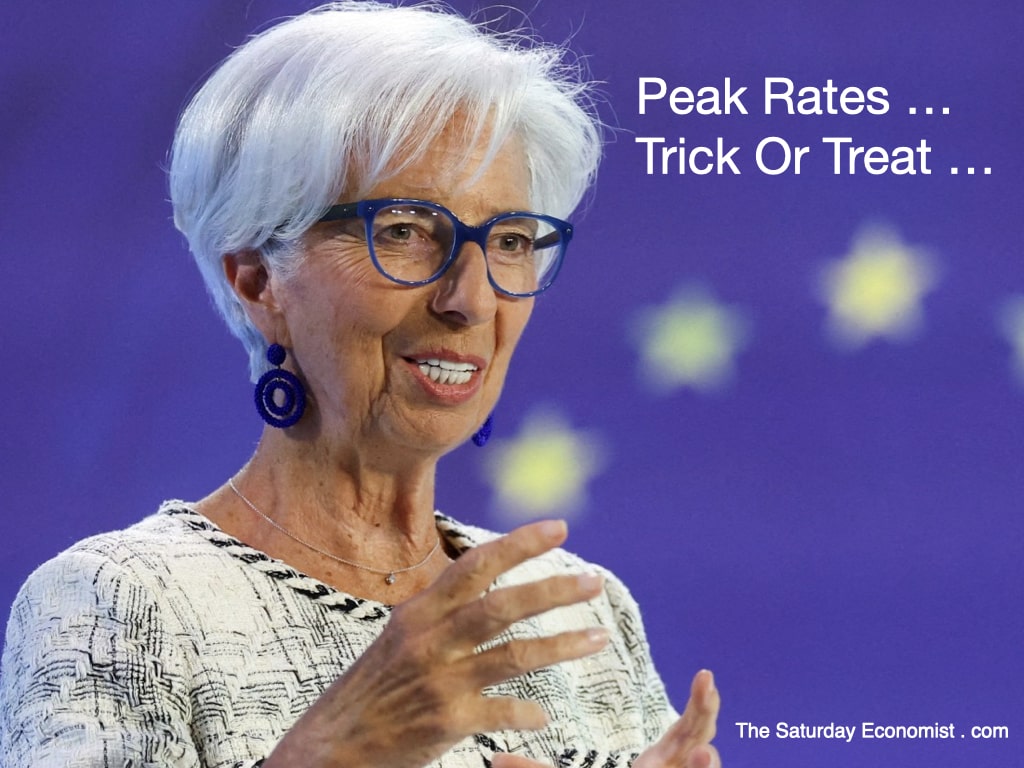
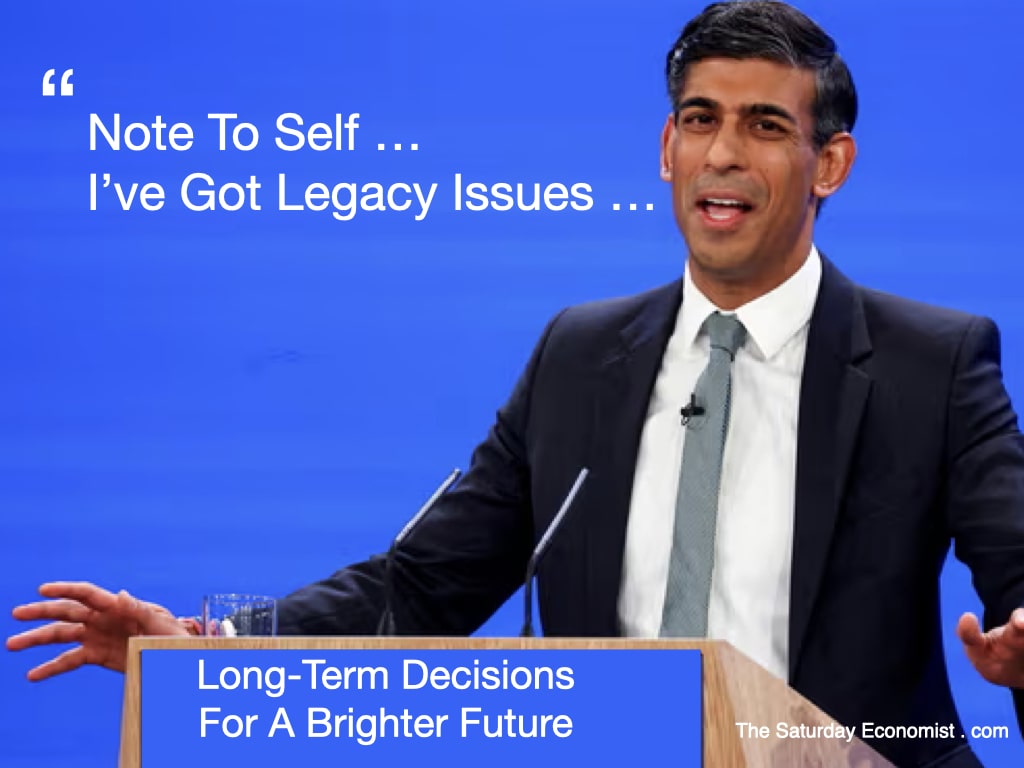
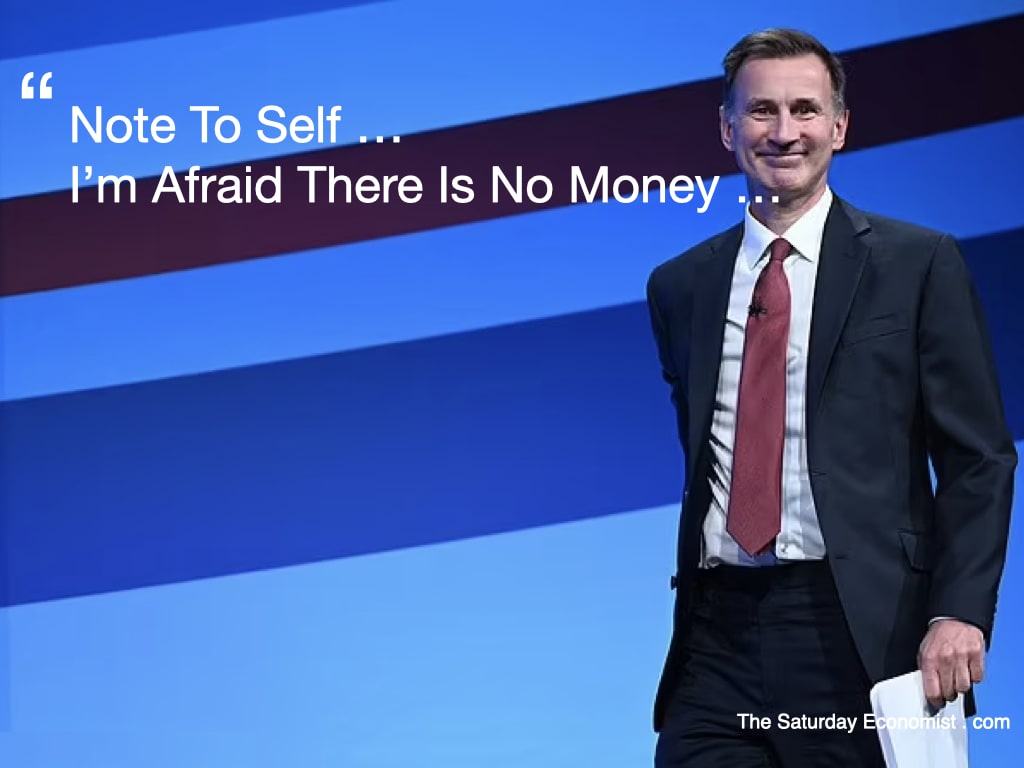

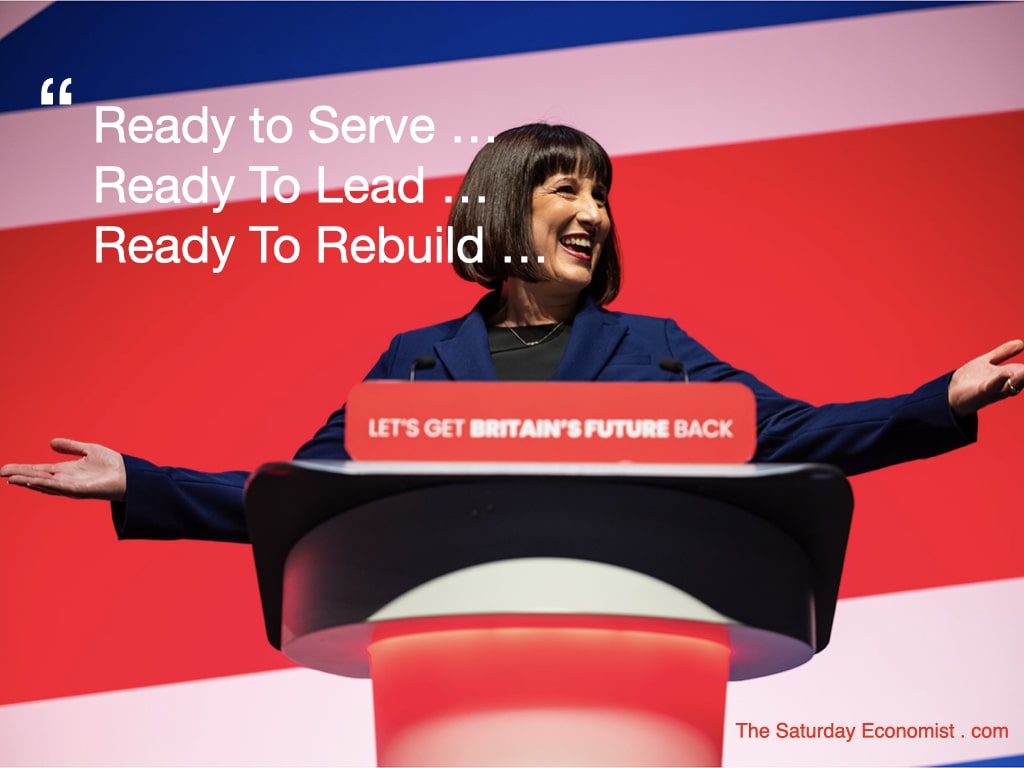
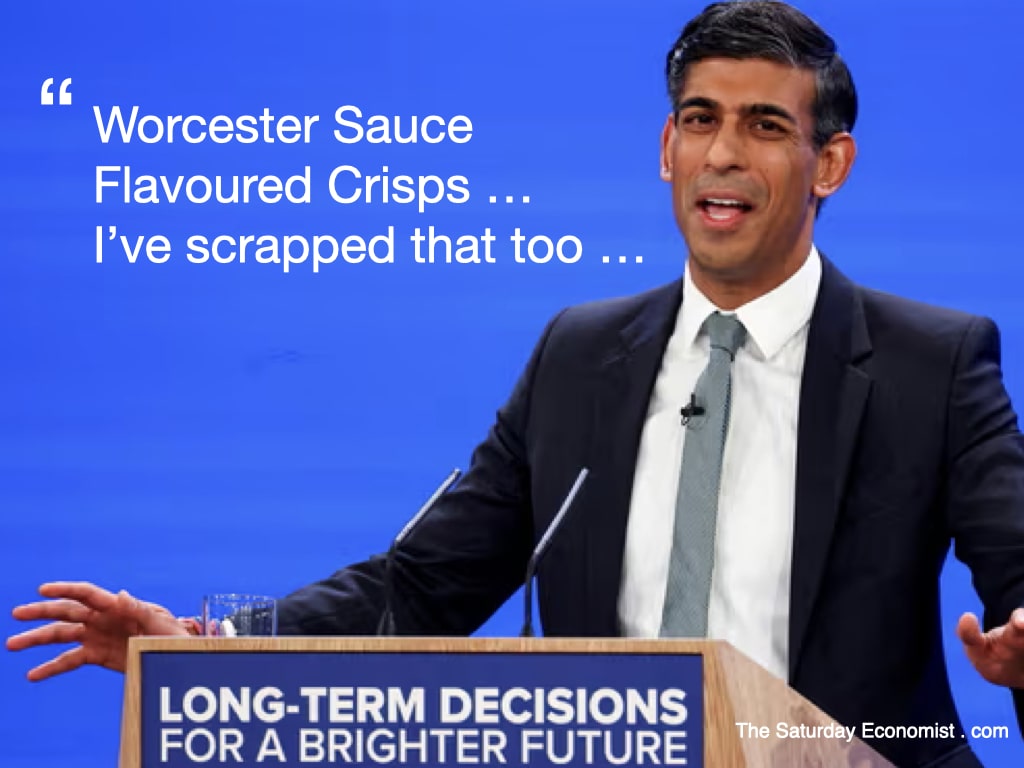
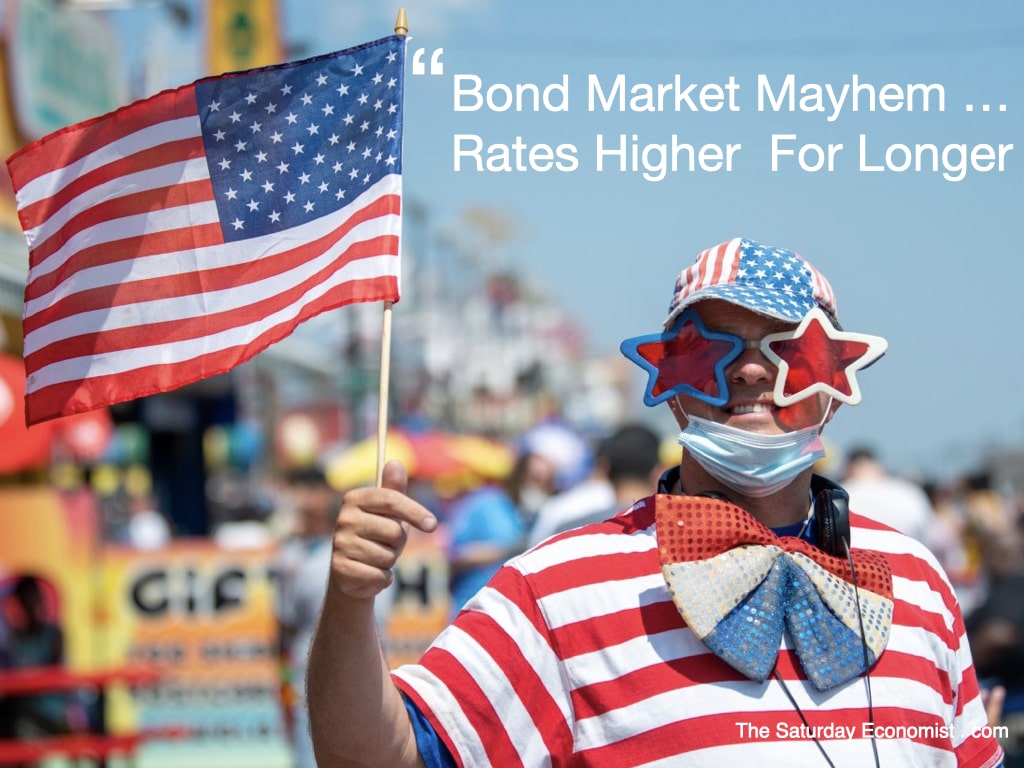
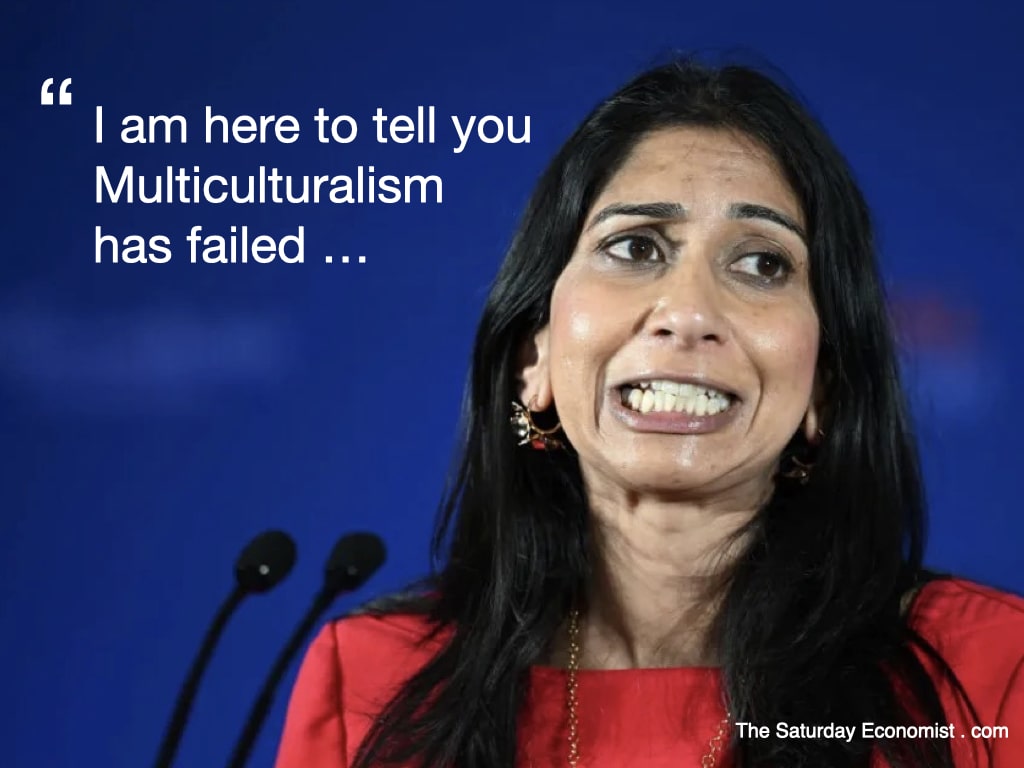
 RSS Feed
RSS Feed